Published Feb 13, 2020
Learning to Let Go With Star Trek
And all the other important lessons about love I've learned from my favorite show.
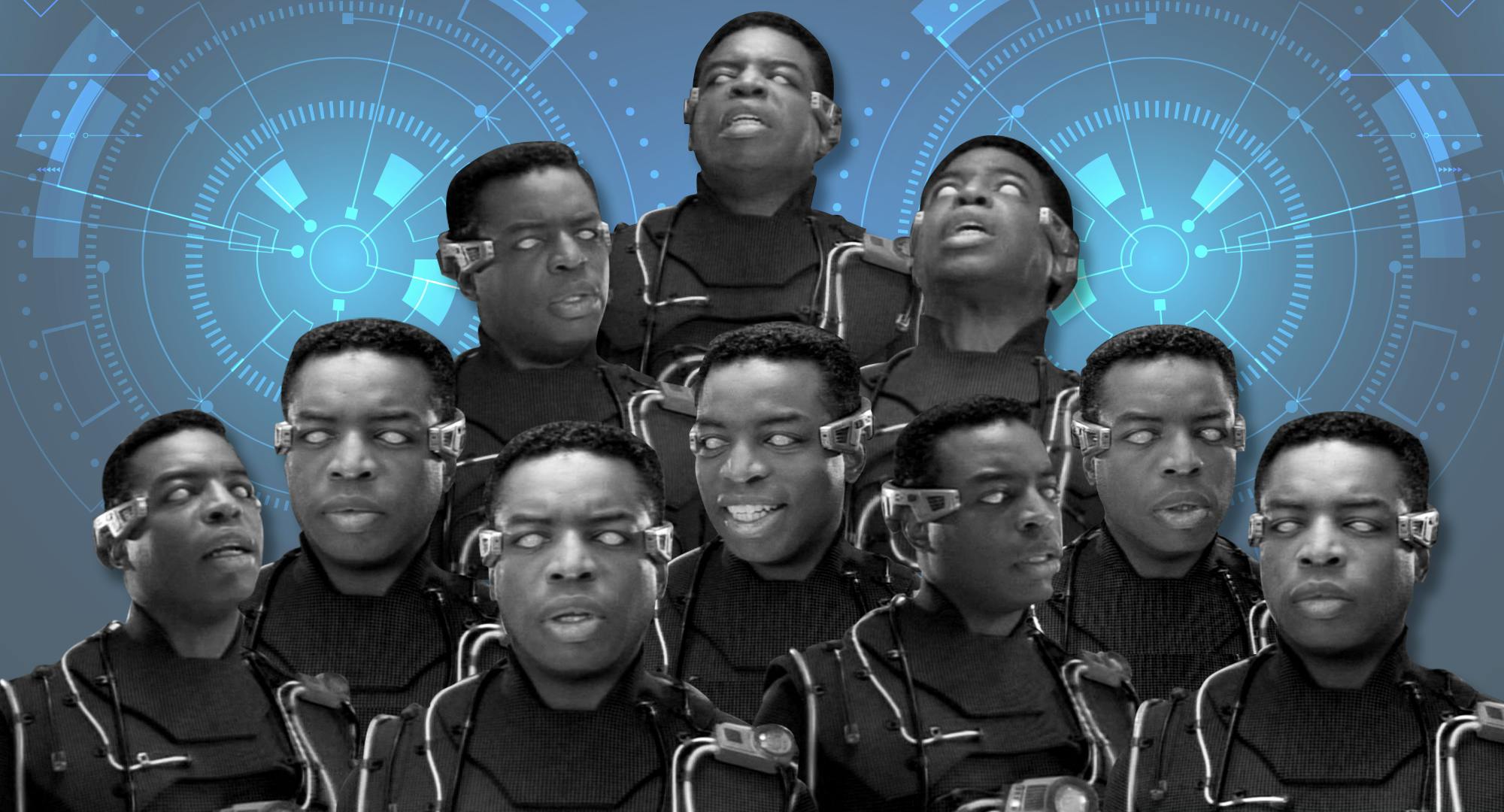
StarTrek.com
Valentine’s Day is this Friday. In celebration, we’re spending the week celebrating love in all the forms it takes throughout the quadrants. L(ove)LAP ?
One of the few episodes of Star Trek: The Next Generation’s run that centers Geordi La Forge in it’s A-plot, “Interface,” follows the chief engineer as he uses an experimental interface to his VISOR to try to reach his missing mother who also happens to be a Starfleet Captain. There is no hot date in this episode. You won't see a passionate inter-species kiss scene or a heroic rescue of a damsel in distress, and yet the influence “Interface” has had on my love life is profound. In this — oddly enough my favorite Valentine’s Day episode — the new technology La Forge develops to aid in finding his mother is comparable to the drone scanners that allowed him to remotely probe another ship without setting foot on it. He would be able to see, hear, and even feel what was happening even though he was still on the Enterprise and in the lab with Data. Despite the potential benefits, this technological innovation came with a very real negative consequence. The process of probing was causing Geordi cerebral damage. He could feel pain as if he were actually on the ship, leading Data to discover that Geordi's neuro pathways were being compromised.
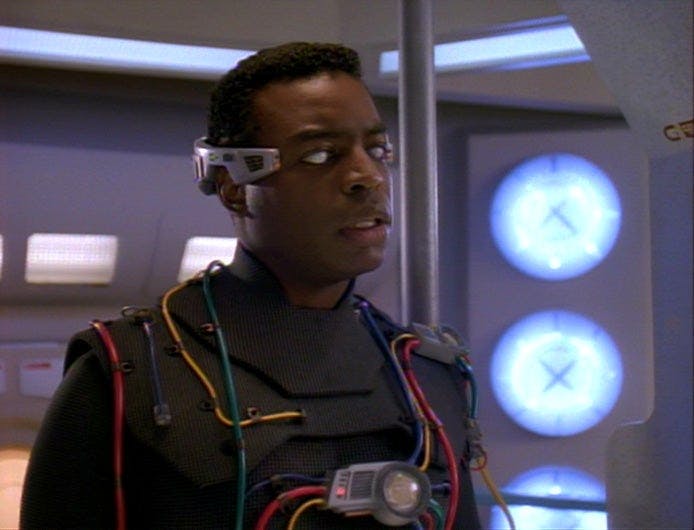
StarTrek.com
With older, more mature eyes, I am able to read deeper meaning into the text— imprinting, admittedly, some of my own experiences onto Geordi. I can see that the Enterprise’s engineer is torn. On one hand, he has come into contact with his mother and has the chance to save her. On the other, doing so will sacrifice his own well being. The stakes were so high, but he could potentially make amends with someone he had loved and lost. Haven’t we all carried that sort of emotional baggage with us at some time or another?That message resonated with me because so many of my bad relationships have ended without closure, with something I hadn't resolved. La Forge had to deal with his past and let go before it destroyed him. His past was literally killing him, yet he kept going back. I fell into those traps of seeing an ex again (at their request), only to be re-traumatized. Like Data, my friends warned me that it was a terrible idea, but I went back anyway. It took me years to realize that I didn't actually need to contact any of my exes in order to get closure. This is only one of the lessons in romance that Star Trek has blessed me with.
Love isn't supposed to hurt
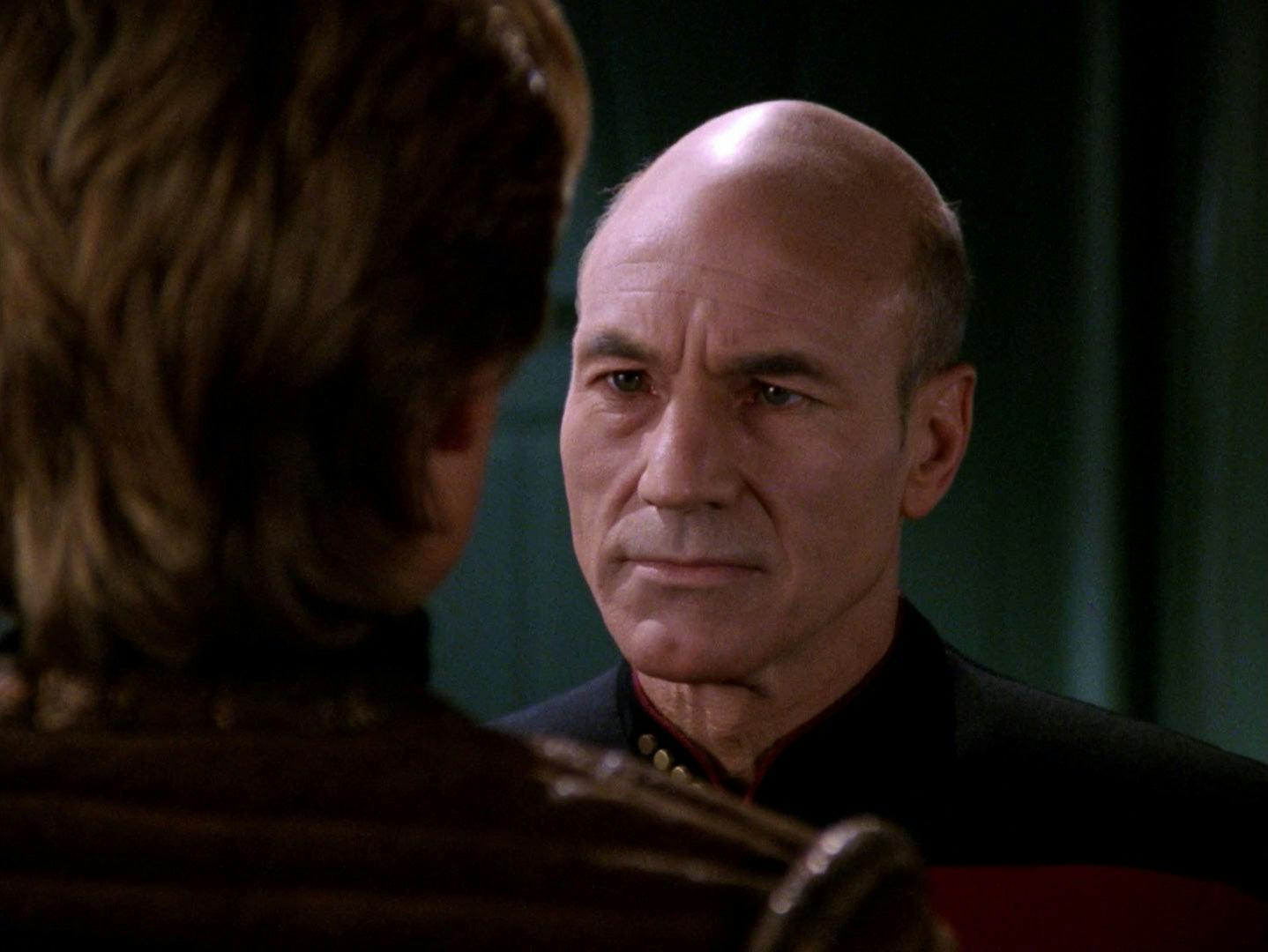
StarTrek.com
Sir Patrick Stewart is a long time advocate for domestic violence survivors. In “Suddenly Human,” Captain Picard comes face to face with what appears to be an abused child. When a Talarian ship reaches out to the Enterprise or help, a young man named Jono comes into contact with the crew. Almost immediately, the boy latches on to Captain Picard as a father figure. Eventually, Picard is convinced that the boy has been abused and he tries to save the young man, only to end up stabbed for his trouble. Jono is torn between being loyal to his abuser or taking a risk on someone new.In the midst of an abusive relationship, the choice is not as simple. The episode is a direct comparison of the choices victims make every day. Being in abusive and degrading relationships can wire our brains to expect and normalize abusive behaviors from loved ones. Therapy was to me what Picard was to Jono. When therapy was first presented as an alternative, I was excited. But then, my ex reemerged and I rejected my counselor's advice. I slid back into a relationship that made me feel worthless. As Dr. Crusher says in the episode, ”abusers can have a subtle, but powerful influence over their victims”.We have to reprogram ourselves to reject the kind of love that hurts. That can mean something as simple as paying more attention to red flags. It could also include leaning on your friends' advice when you're unsure whether you can trust your own intuition.
Closure can happen without the other person
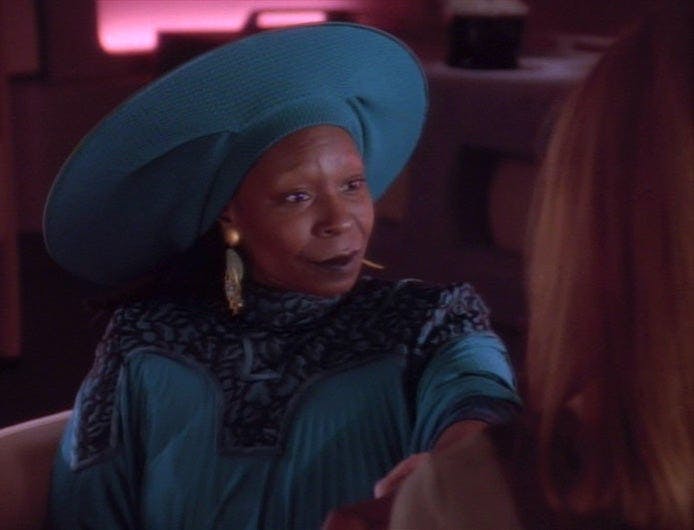
StarTrek.com
This goes beyond breakups and romance. Whether romantic, platonic, or anywhere in between, “Interface” affirmed for me that closure doesn't require the presence of the other person in a relationship. Sometimes, closure is just for you. In some instances it can be good or therapeutic. In most cases (at least for me) those closure conversations either stir old insecurities or get us trapped back in the same patterns. Essentially, I kept going back to the source of my pain to get answers on how to heal. In “Suspicions,” Guinan is the catalyst for Dr. Crusher’s closure. After having her medical credentials stripped away, Dr. Crusher wallows in her quarters awaiting a hearing related to the deaths of two scientists. Guinan unexpectedly comes to see the (now former) doctor about a sports injury. While Dr. Crusher is the main focus of the episode, it’s Guinan’s friendly interjection that I related to. Guinan convinced her to seek closure beyond a reasonable doubt. While Dr. Crusher felt guilty about the death of her colleagues, she persisted in the pursuit of the truth. That gave her closure. Despite the resistance she felt, Dr. Crusher pushed on. She didn’t need to resurrect her deceased colleagues — and we don’t need to resurrect failed relationships to get closure.
Letting go is critical
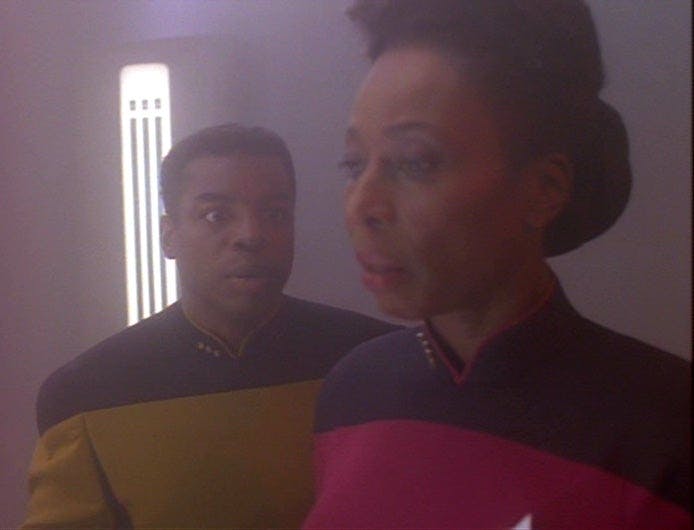
StarTrek.com
In the loving words of Guinan: “You’re going to have to do something you don’t want to do...you have to let go.”Letting go and having closure are two different things. Closure is about shutting the door. It means that the specific situation or person is no longer your concern. Letting go is another level. You have to close the door without being afraid of opening other doors in the future. It's about ensuring that your habits don't put you in the same situation. When we finally leave a toxic or abusive situation, we may unconsciously gravitate towards a similar experience. Letting go means doing the work to find/love yourself again. Letting go means not being afraid to fall in love after someone cheated on you.
If Geordi hadn’t let go in “Interface” he wouldn’t have continued stabilizing phase alignments or traversing alternate timelines. A single setback does not define us. The ability to let go is an underrated talent.
Africa Jackson (she/her) is a news and politics writer based in Louisville, Kentucky. She contributes to Taji Magazine and Hello Giggles. Her forthcoming multidisciplinary project on Choctaw and African traditions will be published in 2020.

